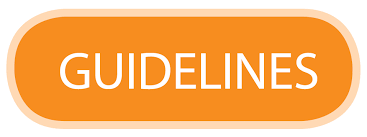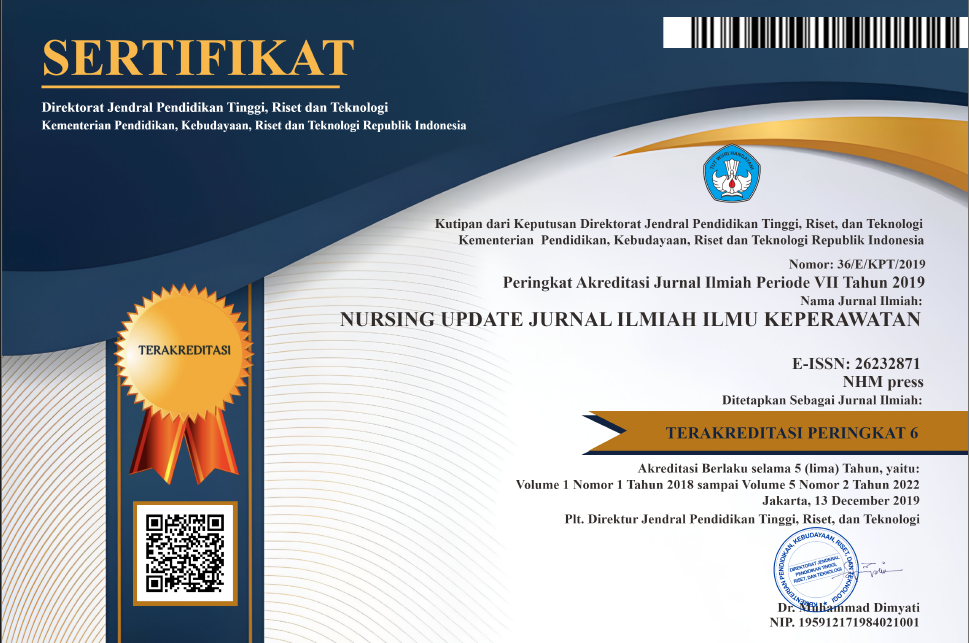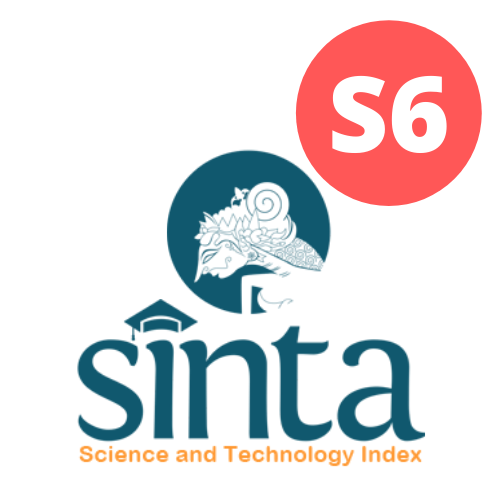HUBUNGAN POLA ASUH ORANG TUA DENGAN KEMANDIRIAN PERSONAL HYGIENE PADA ANAK PRASEKOLAH DI TK PERTIWI SUMBANG
Abstract
Preschool children must be taught personal hygiene activities for independence so that they become habits and can improve health status in Sumbang Purwokerto Village, which has high cases of pneumonia, tuberculosis, and diarrhea. Education given by parents, although in a different way, can produce success. This study aims to determine the relationship between parental parenting and the development of personal hygiene independence in preschool children at Pertiwi Sumbang Kindergarten. This research method is quantitative with analytic research-type correlation. The cross-sectional study design used the PSDQ questionnaire and personal hygiene independence. The total sampling technique was used in this study to collect samples, namely the entire population of mother students at Pertiwi Sumbang Kindergarten, with as many as 31 respondents. The results showed that there were 17 (54.84%) mothers with democratic parenting, 5 (16.13%) with authoritarian parenting, and 9 (29.03%) with permissive parenting, and there were 19 (61.29%) independent personal hygiene students and 12 (38.71%) students who lack personal hygiene independence at Pertiwi Sumbang Kindergarten. Bivariate analysis of this research with the Mann-Whitney test resulted in a p-value of 0.006 and concluded that there was a relationship between parenting and the personal hygiene independence of preschool children in Pertiwi Sumbang kindergarten.










